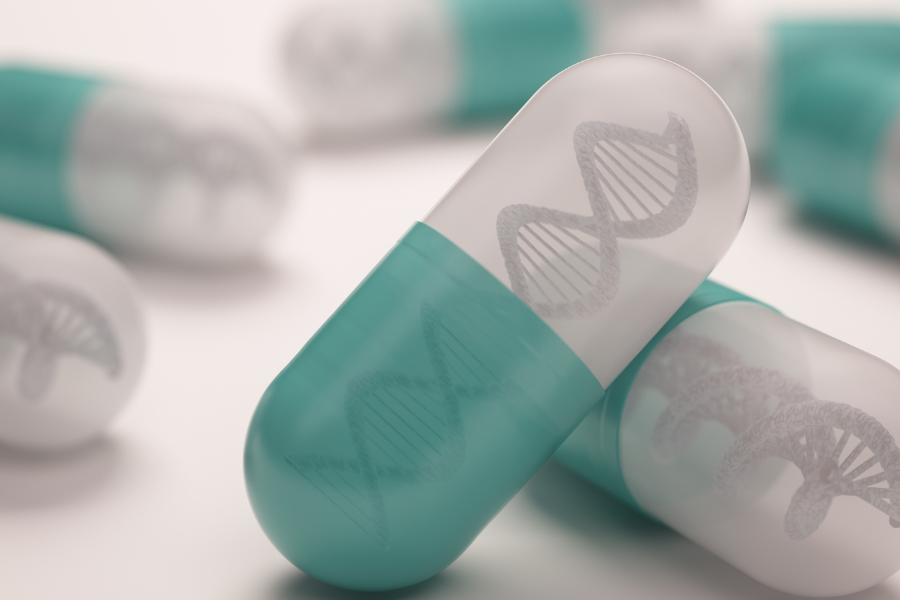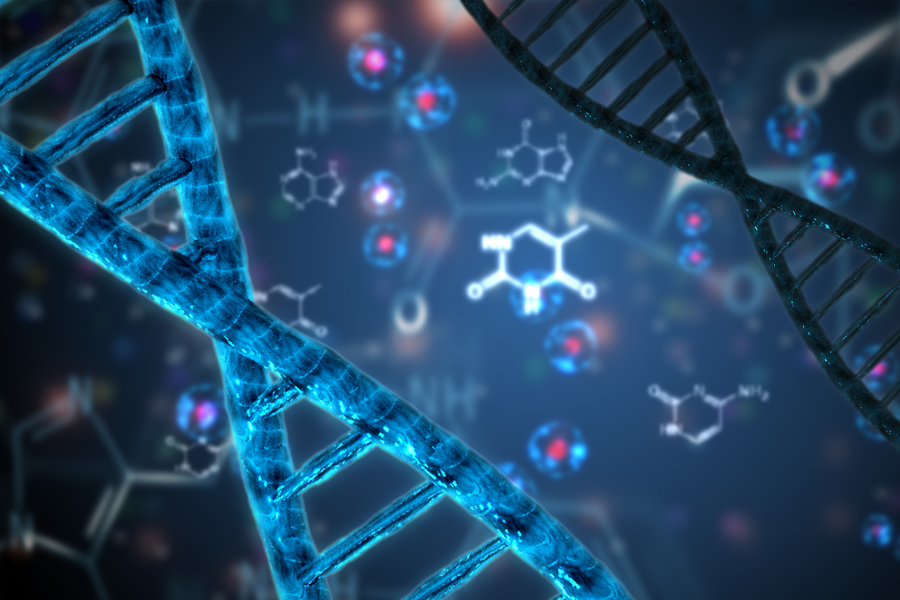Peptides are naturally occurring molecules found in every cell of our body. They are made up of two or more amino acids, which are the basic building blocks of organic matter. When these amino acids are linked together by amide bonds, they form small chains known as peptides. More amino acids are linked together to form bigger molecules known as proteins. Peptides play numerous crucial roles in the normal functioning of the human body.
Peptide Bioregulators interact with specific sections of DNA, activating genes for cellular regeneration through mitosis (cell division). They act as cellular mediators, participating in the regulation of gene expression and protein synthesis. Peptides facilitate communication between cells, including those in the endocrine, nervous, and immune systems. They contribute to organ and tissue reconstruction, restoration of impaired functions, and regulation of gene activity. Due to these functions, Peptide Bioregulators are categorized as a new class of geroprotectors.
How Do Peptide Bioregulators Work?
A peptide is a unique information carrier because it consists of a specific sequence of amino acids. This sequence determines the peptide’s ability to selectively interact with certain cell types or convey information to them. They control gene activity by binding to specific sequences of DNA. They influence the three-dimensional structure of DNA, regulate gene expression, and facilitate protein synthesis through this binding process. As a result, cells can function in a manner akin to that of a young, healthy organism.
Short active peptides play a crucial role as tissue-specific regulators of gene expression and DNA methylation. There is evidence suggesting that peptides can interact directly with DNA and recognize its methylation status.
In theory, peptides may inhibit the function of DNA methyltransferase enzymes. This represents one potential mechanism through which peptides can regulate transcription. The discovery that short peptides can reduce promoter methylation aligns with the proposed mechanisms of transcriptional regulation mediated by short peptides.
What are Natural Peptide Bioregulators?
Natural Russian peptide bioregulators are a group of peptides containing fewer than 50 amino acids and with a molecular mass of less than 5 kDa. These peptides are extracted from the organs and tissues of young calves using a patented method involving thorough filtration. The molecular mass of these peptides is very small, with 5 kDa being significantly smaller than the molecular masses of DNA fragments and proteinaceous infectious particles like prions. As a result, these peptides are exceptionally clean products, free from foreign DNA or protein substances. They do not possess any immunogenic or mutagenic properties, ensuring their safety for consumption.
Bioregulators are also known as “geroprotectors” because they protect DNA and initiate cell repairs2. They come from three primary sources: internally produced by micro-organisms, amino acids ingested through the diet which then get cleaved into shorter sub-combinations, and therapeutic supplement products.
Peptides vs Bioregulators
The main difference between proteins, peptides, and bioregulators comes down to size2:
- Bioregulators: 2-4 amino acids
- Peptides (long-chain): 5-50 amino acids
- Proteins: 50+ amino acids
Bioregulators are peptides that directly control biological activities. Normal peptides do not. The Russians have studied and used them for over 50 years, primarily undertaken by one researcher: Dr. Vladmir Khavinson. He is rumored to have discovered 50+ peptide bioregulators, but only 21 of his are currently commercially available.
Synthetic Peptide Bioregulators
The process of analyzing natural peptides helps identify the most active peptide within a group, which can then be replicated in a laboratory setting. Synthesized peptide bioregulators supplements typically contain a single peptide molecule, whereas natural supplements consist of a group of molecules.
Synthesized peptides exert an immediate impact compared to natural peptides and produce faster results, albeit with a shorter duration (around 1.5-2 months). These peptides are commonly used to initiate treatment. However, it’s recommended to transition to natural peptides for a follow-up course.
List of Bioregulators
Natural Bioregulators:
- Bonomarlot® (Bone marrow)
- Bonothyrk® (Parathyroid)
- Cerluten® (Brain)
- Chelohart® (Heart)
- Chitomur® (Bladder)
- Endoluten® (Pineal)
- Glandokort® (Adrenal)
- Gotratix® (Muscle)
- Libidon® (Prostate gland)
- Pielotax® (Kidney)
- Sigumir® (Cartilage)
- Suprefort® (Pancreas)
- Stamakort® (Stomach mucus)
- Svetinorm® (Liver)
- Taxorest® (Lung)
- Testoluten® (Testes)
- Thyreogen® (Thyroid)
- Ventfort® (Blood vessel)
- Visoluten® (Retina)
- Vladonix® (Thymus)
- Zhenoluten® (Ovary)
Synthesized Bioregulators:
- Honluten® (Lungs and bronchial mucous)
- Kartalaks® (Cartilage)
- Kristagen® (Thymus)
- Ovagen® (Liver and gastrointestinal tract)
- Pinealon® (Brain)
- Vezugen® (Blood vessel)
Conclusion
Peptide bioregulators, play a vital role in regulating various bodily functions, including cellular regeneration, gene expression, and protein synthesis. These molecules interact with specific sections of DNA, activating genes for cellular repair and growth. Peptide bioregulators have garnered significant attention due to their potential to promote tissue-specific regeneration and their role as geroprotectors, protecting DNA and initiating cell repairs.
Ultimately, peptide bioregulators have a promising future for promoting health and longevity, offering targeted support for various bodily systems and functions. However, further research and exploration into the potential applications and mechanisms of action of peptide bioregulators are needed to fully harness their therapeutic benefits.
FAQ
Do Peptide Bioregulators Really Work?
Yes, peptide bioregulators are unique oral substances that interact with genes and proteins, aiming to restore balance and promote health within the body. Their distinct mechanism sets them apart from traditional injectable peptides.
How are Peptide Bioregulators Different From Other Peptides?
Peptide bioregulators differ from other peptides in their unique approach. Firstly, they are taken orally, not via injections, and also their mechanism targets specific genes and proteins to restore balance within the body.
Are Peptide Bioregulators Safe for Consumption?
Peptide bioregulators are generally considered safe for consumption. However, as with any supplement or medication, it’s essential to consult a healthcare professional before use.
How Long Does it Take to See Results From Using Peptide Bioregulators?
Results from using peptide bioregulators can vary based on individual factors, but typically, noticeable effects may become apparent within several weeks to a few months of consistent use.
Get Started, Book a Free Consultation
Book a free 20-minute consultation to learn more about how this peptide can help you.




